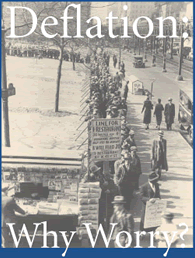
Warning: this post is not so much about markets as it is the thought process that underpins my thinking.
Thinking about the markets is basically critical thinking. To wit:
When I was in Key West, Florida, I had a conversation (being Key West, this conversation was obviously held over cocktails) with some people who claimed the Florida Manatee has "no natural defense against predators".
I thought this curious. Every animal alive has "some" form of defense against predation or else they will not have prospered. So I immediately began thinking about what I know about this animal compared to what I do not know about it.
Choosing information sources is an important step. In this case, open source resources seemed objective enough given the non-technical aspects of identifying and characterizing this animal. Thus, I used Wikipedia to search for the animal, the relevant entry is as follows:
http://en.wikipedia.org/wiki/Manatee
Duly armed with descriptive characteristics of the animal, I set about answering the question of "natural defense against predation".
The word "natural" always holds problems (as opposed to unnatural? supernatural?), but discarding that for the moment, let us focus on predation.
Again choosing open-source resources as the subject is non-technical and has enough participants to form a consensus opinion, I perused several on-line books to determine a useful way to define predation.
John Endler has broken down "predation" into various sub-stages. They are (in sequential order):
1. Encounter
2. Detection
3. Identification
4. Approach (attack)
5. Subjugation
6. Consumption
An animal can avoid predation at any one of these stages.
So let us apply this to the Manatee. Again, this derives from my interlocutors assertion that Manatees have "no natural defense against predators"
Avoiding the obvious question of "are there any predators?" Let us imagine a (very) large Alligator attempting predation upon the supposedly helpless Manatee.
Encounter, detection and identification all have their problems, but let us assume our hungry Alligator has focused on its prey and is attacking with extreme prejudice.
Getting its jaws in a position to subjugate is a problem. Manatees are bulbous creatures with a wide circumference and few angular features. Simply creating a wide enough angle to masticate a Manatee would be difficult for any creature not equipped with a truly gigantic maw.
Manatees are also incredibly powerful swimmers. In addition to their raw power, their very wide rear flipper creates tremendous amounts of turbulence. Think of the turbulence a 1000 pound animal makes when exhibiting explosive movement in anticipation or reaction to attack. This turbulence within its native habitat (rivers, etc.) creates a veritable explosion of sedimentary displacement resulting in a much more effective version of squid ink. Our Alligator would experience a great deal of confusion and blindness should the Manatee disagree with its putative subjugation.
Thus, the statement is false. No, a Manatee does not have armed torpedoes, but it certainly has defenses against at least 2 of the sub-stages (subjugation and consumption) of predation.
In conclusion, I realize this is mostly "critical thinking" 101 for most of you, but vigilance is required when dealing with conclusory statements that fly in the face of common sense...a statement like "no natural defense" must beg the question of "why is that important" and "are you sure you have not thought about ALL possible defenses?"
Such it is with markets...you must be acutely and obsessively aware of what you MIGHT not know. Again, the price of freedom is eternal vigilance.


























